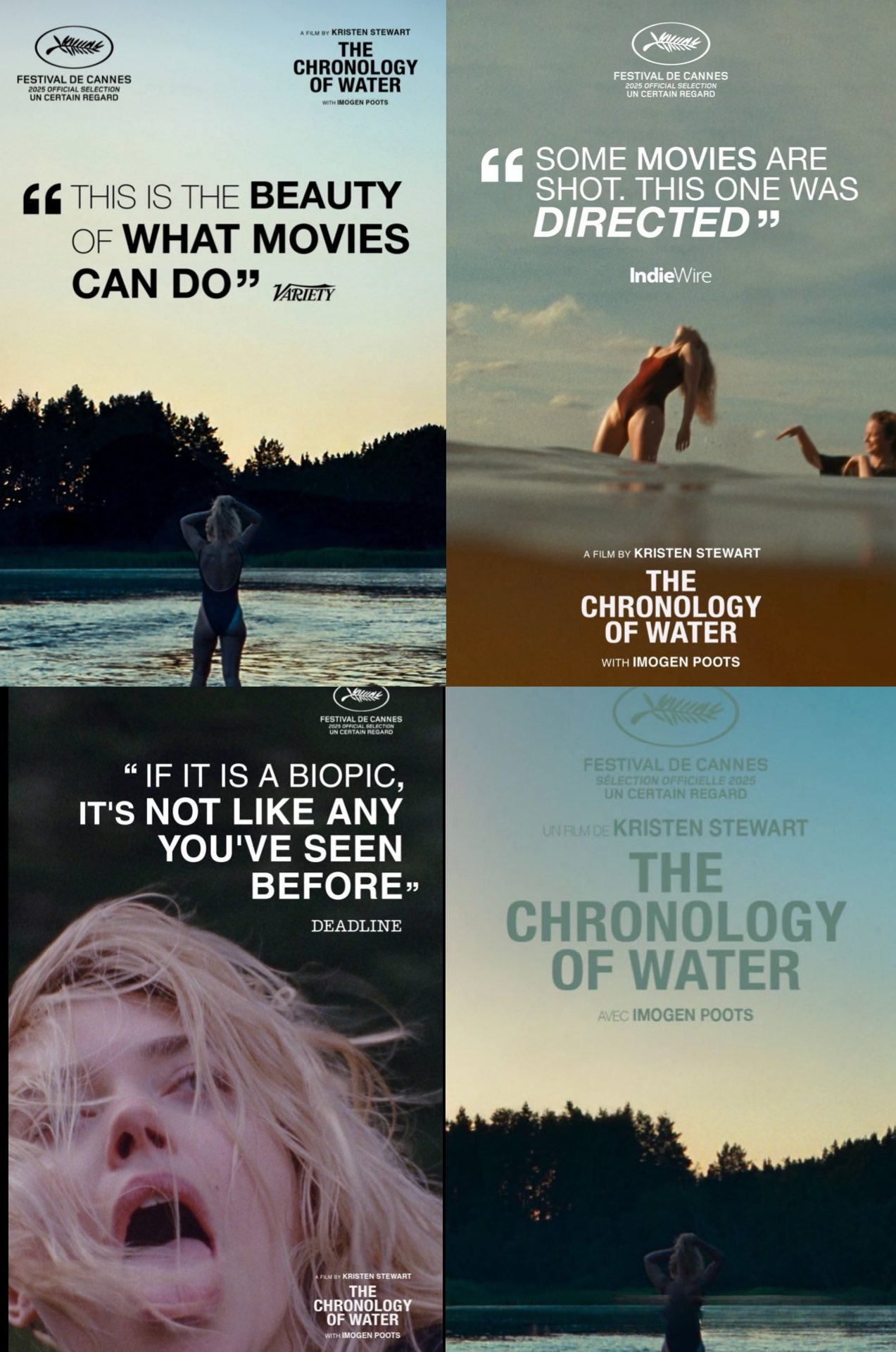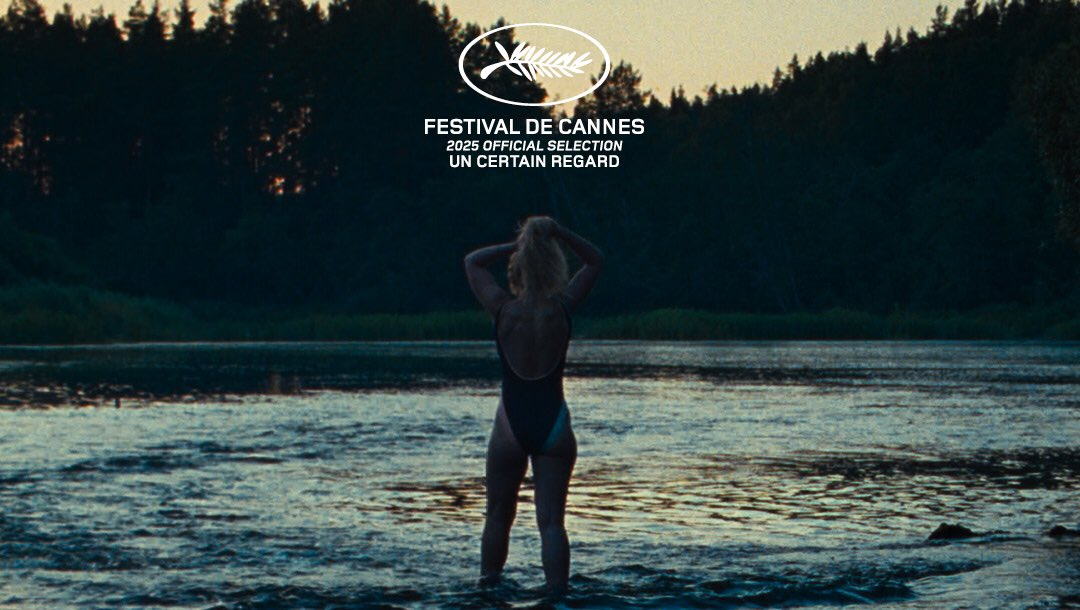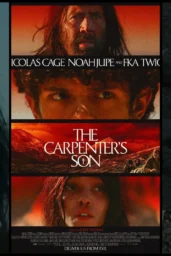A Splash That Divides
Kristen Stewart, once the brooding star of Twilight, has plunged into uncharted waters with her directorial debut, The Chronology of Water, which premiered at the Cannes Film Festival on May 16, 2025. Adapting Lidia Yuknavitch’s raw memoir, the film tackles trauma, addiction, and artistic rebirth with a ferocity that’s left critics and audiences reeling. Some call it a cinematic revelation, others a chaotic misstep. Like a swimmer caught in a riptide, Stewart’s debut pulls you in—but not everyone makes it to shore.
A Bold Vision, A Mixed Reception
Stewart’s choice to helm The Chronology of Water (IMDb) marks a daring shift from her acting career. Shot on 16mm, the film’s non-linear narrative and visceral visuals aim for poetic resonance, with water symbolizing both destruction and renewal. IndieWire (IndieWire Review) gave it a B+, praising its “fearless” defiance of expectations, while Variety (Variety Review) called it “artful and captivating,” likening it to The Tree of Life for its impressionistic style. TheWrap (TheWrap Review) hailed it as a “boldly confident” work, and Time Out (Time Out Review) awarded 4/5 stars for its “languid, echoing” tone.
Yet, not all critics were swept away. Vanity Fair (Vanity Fair Review) argued the film reveres its source material too much, feeling like a “formal study” rather than a deeply felt story, suggesting viewers read the memoir first. Screen Daily (Screen Daily Review) criticized its 128-minute runtime and repetitive structure, noting that Yuknavitch’s journey to sobriety feels “tedious.” The Guardian (Guardian Review) described it as “choppy but compelling,” acknowledging its intensity but questioning its coherence. It’s as if Stewart dove into the deep end of experimental cinema, only to find some critics prefer the shallow end.

| Outlet | Tone | Rating | Key Praise | Key Criticism |
|---|---|---|---|---|
| IndieWire | Confrontational, visceral | B+ | Fearless, defying expectations | Overwhelming intensity |
| TheWrap | Raw, evocative | Implicitly positive | Boldly confident, career-best Poots | Disturbing subject matter |
| Time Out | Poetic, discomforting | 4/5 stars | Emotionally visceral, poetic exploration | Overlong, repetitive |
| Variety | Poetic, passionate | Implicitly positive | Artful, captivating, radiant Poots | None explicitly noted |
| Vanity Fair | Oppressive, uneasy | Mixed | Bold, experimental | Overwhelms meaning, lacks depth |
| Screen Daily | Intense, bittersweet | Mixed | Raw Poots, dreamlike editing | Repetitive, tedious length |
| The Guardian | Earnest, heartfelt | Mixed | Compelling, heartfelt Poots | Choppy, lacks coherence |
The Heart of the Story
The Chronology of Water follows Lidia Yuknavitch’s life, portrayed by Imogen Poots, through a gauntlet of abuse, addiction, and self-discovery. From a traumatic childhood marked by sexual abuse to a near-champion swimming career derailed by substance abuse, Lidia’s story is one of resilience. Writing, mentored by Ken Kesey (Jim Belushi), becomes her salvation, transforming pain into art. The film’s fragmented narrative, with rapid time shifts and dreamlike visuals, mirrors Lidia’s fractured psyche. Water, a central metaphor, flows through the story—destructive in her past, redemptive in her rebirth.
Poots’ performance is the film’s anchor. Screen Daily (Screen Daily Review) calls her “raw, ferocious, and wounded,” while Variety (Variety Review) praises her “radiant” intensity. Even critical reviews, like Vanity Fair (Vanity Fair Review), commend her breakneck commitment, though they note the script’s limited dialogue restricts her presence.
Cannes, a stage for bold cinema, amplified the film’s impact. A 6.5-minute ovation (Deadline Ovation) signaled audience enthusiasm, but the critical divide reflects the festival’s love for provocative art. Stewart herself acknowledged submitting a rough cut (Deadline Ovation), planning to refine it post-festival, which may address some criticisms.


Why It Matters
Stewart’s debut is more than a film—it’s a statement. Her shift from actor to director, tackling a memoir as raw as Yuknavitch’s, positions her as a risk-taker in an industry often cautious with first-time filmmakers. The film’s exploration of women’s trauma and resilience, as Time Out (Time Out Review) notes, “dispels female shame” and turns “bodies as war zones” into art. This resonates in a cultural moment prioritizing authentic voices.
Yet, the mixed reviews highlight a tension: artistic ambition versus accessibility. TheWrap (TheWrap Review) sees it as a “work of cinematic poetry,” but Screen Daily (Screen Daily Review) warns its length tests patience. Stewart’s 16mm aesthetic and non-linear storytelling, while innovative, alienate some viewers craving structure. It’s a high-wire act— exhilarating for some, exhausting for others.
The Verdict
The Chronology of Water is a paradox: a film that soars and stumbles, often in the same breath. Stewart’s vision, paired with Poots’ searing performance, makes it a compelling debut, but its experimental excess leaves some critics cold. As Stewart heads back to the editing room, a tighter cut might bridge the divide. For now, it’s a film you’ll either love or loathe—or both, depending on the day. So, genius or overreach? Dive in and decide.











